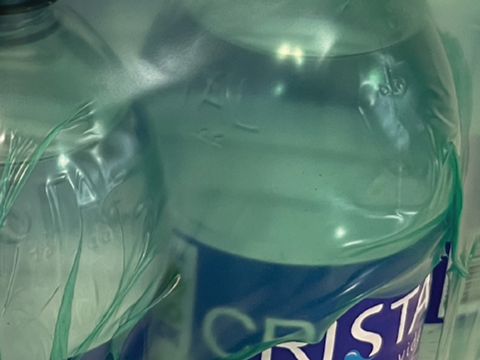
ExxonMobil has helped Plastilene and Reciclene develop collation shrink films with post-consumer recycled content, claiming to reinforce their strength and durability with its polyethylene polymer.
At the start of the process, Plastilene provided instructions and training to local waste collecting associations like Recitoc, which now collect and sort plastic residues to be sent to Reciclene.
“Our customers demand that films containing recycled content perform as well as those featuring virgin resin,” said Ricardo Estrada, vice president of Sustainability & Global Procurement at Plastilene. “To accomplish this task, it is important to secure high-quality post-consumer content.”
“For waste pickers, recycling has turned into a work opportunity where not only can it help change our life quality but also that of our families,” added Recitoc legal representative Marcela Ramos. “One of the materials that has generated a positive impact to waste collectors is the plastic that is picked and sold to Reciclene.”
At this point, Reciclene cleans and processes the recycled content, resulting in CICLOLENE PCR standardized resin. ExxonMobil’s Exceed Stiff+ m 0238 polyethylene, part of its Signature Polymers polyolefin portfolio, is integrated into the recycled material to form collation film with recycled content.
According to ‘extensive’ testing at ExxonMobil’s Technology Center, the polyethylene helps the final films maintain their mechanical properties, providing high holding force to support the implementation of PCR – all while aligning with local recycling regulations and broader industry standards.
The films have also been tested for tensile properties, haze, and shrinkage with the ASTM D882, ASTM D1003, and Plastilene methods, respectively.
“This is where collaboration across the value chain is essential,” Estrada explained. “We can produce high-quality commercial PCR resin which, when combined with ExxonMobil performance polymers, enables Plastilene to extrude high-performance collation shrink film.”
ExxonMobil also provided Reciclene with formulation suggestions, including a detailed analysis to characterize six different types of post-consumer recyclate and determine which was the most suitable for the application.
The collaboration sets out to prove that high-quality recycled content is compatible with flexible packaging without impacting its performance. It is believed to reinforce the industry’s efforts to optimize resource efficiency, support local extended producer responsibility (EPR) requirements for brand owners, and contribute to the Plastilene Group Sustainable Innovation Strategy Commitments.
A full case study is also available here.
The announcement comes after ExxonMobil worked with Alico and Kuraray to produce a high-performance shrink barrier bag for protecting fresh meats against oxygen and humidity without relying on PET or PVDC. The pack combines ExxonMobil’s Exceed Tough+ m 0512 polymer with orientable EVOH grades from Kuraray’s EVAL range to balance mechanical and optical properties in one solution.
In other news, Borealis has just released a high-performance linear low-density polyethylene grade containing 85% post-consumer recyclate. Tailored for non-food blown film applications across primary, secondary, and tertiary packaging, it is said to offer “exceptional” stretchability, low gel content, and an “excellent toughness-stiffness balance”.
If you liked this story, you might also enjoy:
Reuse vs. single use – which is better for the environment?
Sustainable Innovation Report 2025: Current trends and future priorities
What can the world learn from South Korea’s world-leading performance in plastics circularity?


















No comments yet